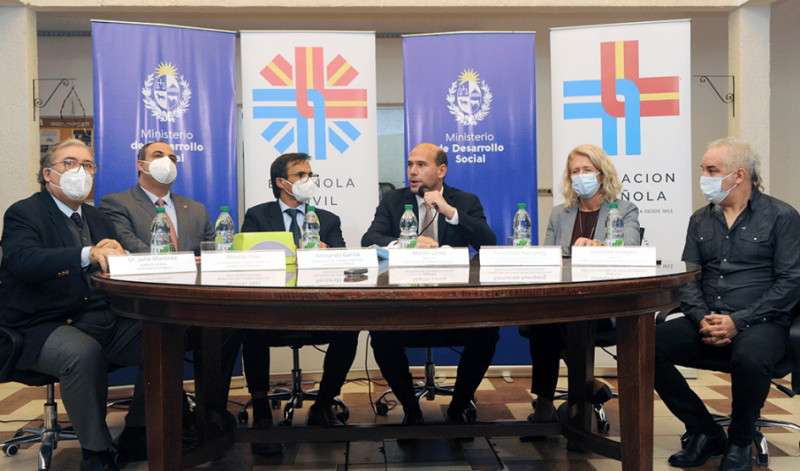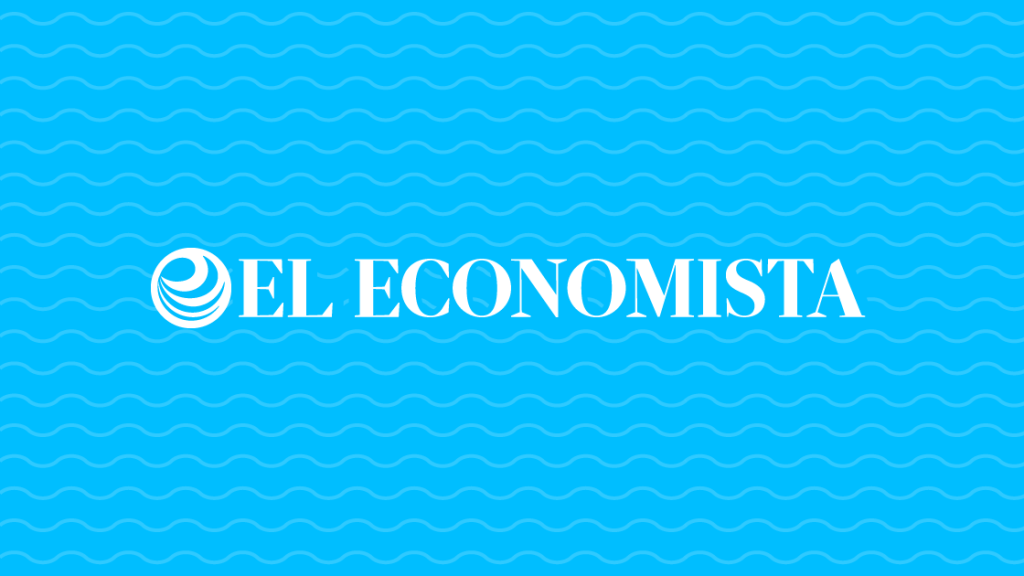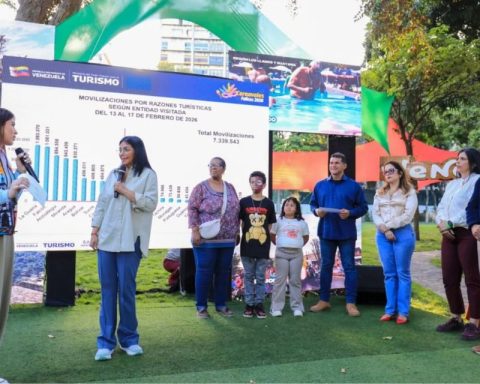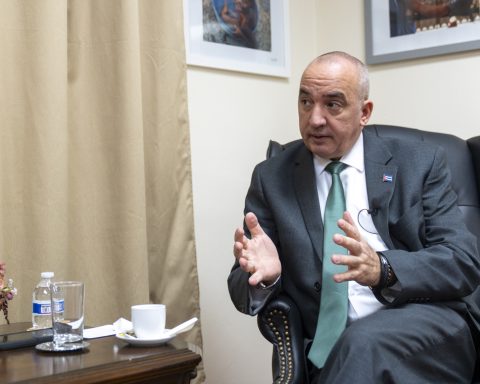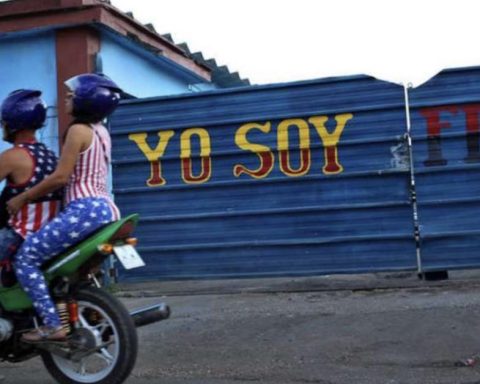The Ministry of Social Development and the Spanish Association signed an assistance agreement for users of the National Directorate for Released Support that involves strengthening care in general medicine, psychiatry and psychology. In addition, the provider donated an automatic external defibrillator for the Posada de Camino Óscar Ravecca and will take care of the medical care of that place, where there is capacity for 30 people.
Participating in the agreement, which was signed at the Óscar Ravecca inn, were the Minister of Social Development, Martín Lema; the director of Social Protection, Fernanda Auersperg; the director of Support for the Liberated, Gustavo Silveyra; the general manager of the Spanish Association, Julio Martínez, and the president and secretary of the provider’s Board of Directors, Fernando García and Nicolás Diaz, respectively.
In dialogue with the journalistic media, Lema reported that the National Directorate of the Liberated (Dinali) became dependent on the National Directorate of Social Protection, which works in the Mides orbit, since January 2022. He affirmed that this change gives it a social imprint and very strong containment of the issue and that the priority should be to provide tools and opportunities to people who regain their freedom, so that they can reintegrate into society effectively.
He explained that the agreement includes 6 hours of care in general medicine, 5 hours of psychiatric care and 9 hours of psychological assistance, per week, for the almost 500 users who leave the prison system monthly. It allows the implementation and strengthening of health treatments and this, in turn, generates alternatives for these users, he indicated.
The hierarch also maintained that Dinali is working to generate job quotas, which will be increased through the Protected Work program; coordinate dental care with universities; promote entrepreneurship, collaborating in turn with the procedures regarding food science to authorize the production of artisanal products within the inn, as well as generate training, through agreements with UTU and the National Institute of Employment and Professional Training (Inefop).
The Posada de Camino Óscar Ravecca houses people who leave the prison system, are in a situation of socioeconomic vulnerability and lack a place to live. This device is self-managed by the users themselves, who have the permanent support of a technical team made up of psychologists, workers and social educators. It is a mixed space, with capacity for 30 people. The stay period varies between 90 and 120 days. Presidency
